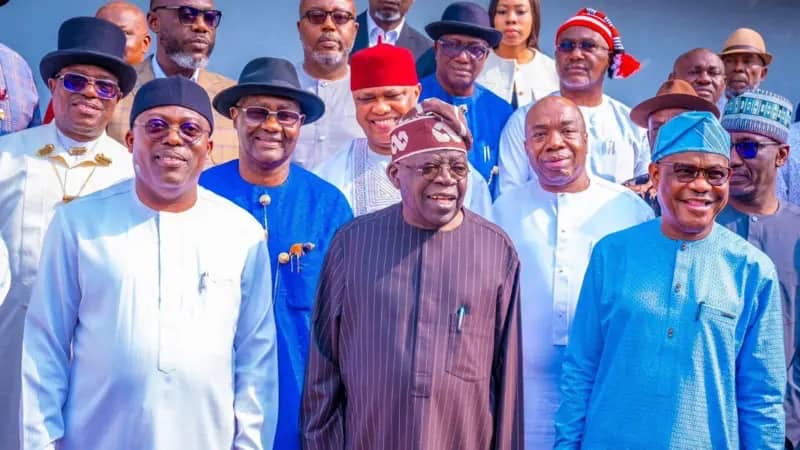

By Prince Austin Kabari
On November 10, 1995, Nigeria etched one of the darkest chapters in its history when Ken Saro-Wiwa and eight other Ogoni leaders, now remembered as the “Ogoni Nine”, were executed after a sham trial. Their only crime was the audacity to demand justice, dignity, and protection for their land against decades of oil exploitation and environmental destruction.
That execution, carried out under General Sani Abacha’s regime, reverberated across the globe, symbolising not just the silencing of dissent but also the lethal indifference of the Nigerian state to environmental justice and human rights. For nearly 30 years, the shadow of that injustice has loomed large over Ogoniland.
But today, there is a glimmer of hope. Under President Bola Ahmed Tinubu, and with the determined efforts of National Security Adviser Nuhu Ribadu, building on earlier, incomplete initiatives, Nigeria has begun to take meaningful steps to atone for the past and chart a new path of reconciliation, remediation, and renewal in Ogoni.


The modern Ogoni movement began in 1990 when Ken Saro-Wiwa and the Movement for the Survival of the Ogoni People (MOSOP) launched the Ogoni Bill of Rights, demanding environmental protection, resource control, and political inclusion. Their calls gained global resonance, and on January 4, 1993, over 300,000 Ogoni staged a peaceful protest against Shell’s operations, an unprecedented grassroots mobilisation now remembered as “Ogoni Day.” The protest forced Shell to suspend operations but triggered a brutal military crackdown. Violence escalated, culminating in the murder of four Ogoni leaders in 1994, followed by the arrest and eventual execution of Saro-Wiwa and his colleagues.
The killings silenced lives but not the movement. They left a moral scar that successive governments struggled to heal. Ogoni communities and leaders continued to demand remediation, inclusion, and justice, while the state offered intermittent initiatives. President Olusegun Obasanjo convened the Oputa Panel and established the Ogoni Reconciliation Committee under Rev. Father Mathew Hassan Kukah, but the outcomes were limited.
President Goodluck Jonathan took a bold step by commissioning the United Nations Environment Programme (UNEP) to assess Ogoniland’s damage. The 2011 UNEP Report was damning: drinking water with benzene contamination up to 900 times above World Health Organisation safety standards, farmland destroyed, groundwater poisoned. It called for an initial $1 billion clean-up, lasting up to 30 years. Jonathan also launched the Hydrocarbon Pollution Remediation Project (HYPREP), but the agency lacked the authority to drive meaningful change.
President Muhammadu Buhari later expanded HYPREP and initiated cleanup projects. Still, bureaucracy, slow implementation, and limited community trust meant progress fell far short of expectations. To many Ogonis, government promises seemed like hollow words, deepening scepticism. Three decades after the martyrdom of the Ogoni Thirteen, Ogoniland remained a symbol of neglect, exploitation, and environmental injustice.
It is against this backdrop that the current efforts under President Tinubu stand out. In January this year, Tinubu invited Ogoni stakeholders to the Presidential Villa, a symbolic but powerful gesture. More importantly, he tasked National Security Adviser Nuhu Ribadu with building consensus, signalling a break from the past. Instead of imposing decisions from Abuja, Ribadu established the Ogoni Dialogue Committee, chaired by Professor Don Baridam, which has since held town halls across Ogoni communities, amplifying voices that were previously ignored.
Unlike previous half-measures, dialogue has been matched with action. The administration has launched the Federal University of Environment and Technology in Ogoni, the first of its kind in Africa, dedicated to environmental sciences and sustainability. More than a university, it stands as a symbol of federal commitment to addressing decades of ecological injustice.
Work has also commenced on the Ogoni Industrial Park to diversify the local economy, reduce dependence on oil, and create job opportunities. Long-stalled projects, such as the East-West Road, which is vital for regional integration, are finally moving forward, alongside renewed investment in healthcare, education, and basic infrastructure.
Symbolism has also been central. President Tinubu’s decision to grant a presidential pardon to the Ogoni Nine, coupled with posthumous national honours, represents one of the most significant gestures of reconciliation in Nigeria’s history. For the first time, the Nigerian state has openly acknowledged the injustice of 1995 and honoured the sacrifices of the Ogoni martyrs. While such actions cannot erase the pain of the past, they offer a long-awaited moral atonement. Equally significant, leaders such as Ledum Mitee, who carried forward the struggle for justice, have been recognised for their contributions, reinforcing the sense that the state is at last listening.
What distinguishes the Tinubu administration’s approach is its blend of symbolism and substance. Past governments made lofty promises but failed to follow through, alienating the very people they sought to placate. Today, dialogue, concrete projects, and acts of justice are working together to rebuild trust. The direct involvement of the NSA in monitoring progress, including site visits and accountability measures, provides added credibility. The Ogoni Dialogue Committee’s forthcoming report, capturing community aspirations, environmental concerns, and demands for resource management, sets the stage for structured negotiations between Ogoni leaders and the federal government.
For the first time in 30 years, the Ogoni people have reasons to believe that their struggle may not have been in vain. This is not to claim that all of Ogoniland’s problems are solved, far from it. The environmental cleanup remains incomplete, health risks persist, and scepticism lingers after decades of unfulfilled promises. Yet there is momentum, and if sustained, it could mark a decisive turning point. The Ogoni story, once synonymous with suffering, may become a narrative of resilience, renewal, and justice.
The lesson from Ogoniland is larger than Ogoniland itself. It is a mirror for Nigeria. If the state can confront past wrongs, embrace dialogue, and invest in inclusive development, peace and prosperity become possible even in regions scarred by exploitation. Ogoni could serve as a model for other oil-rich but impoverished communities across Africa, proving that justice and development can co-exist when governments listen and act.
The ghosts of November 1995 will always haunt Nigeria, but they need not define its future. With sincerity, transparency, and sustained commitment, the efforts of President Tinubu and NSA Ribadu can transform Ogoni from a symbol of martyrdom into a beacon of justice and hope. The question that has haunted the people, whether theirs is a flash in the pan or the long march to freedom, may finally find its answer. For the first time in a generation, Ogoni can see hope on the horizon.
Prince Kabari, a Public Affairs Analyst writes from Abuja



